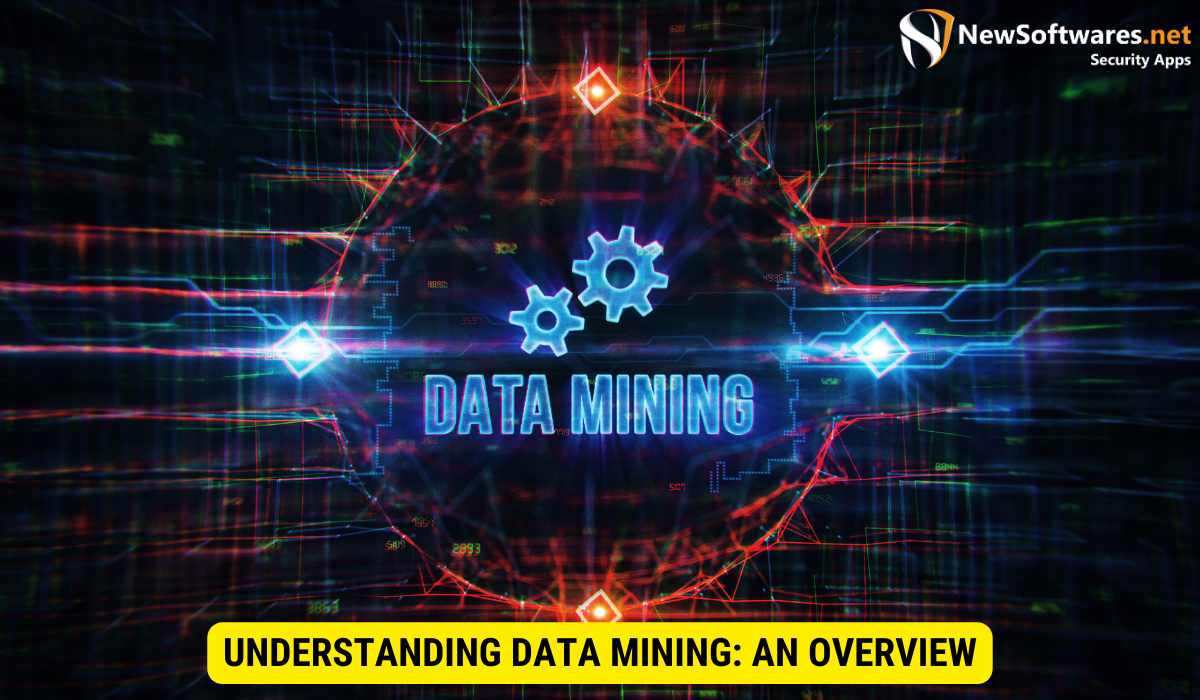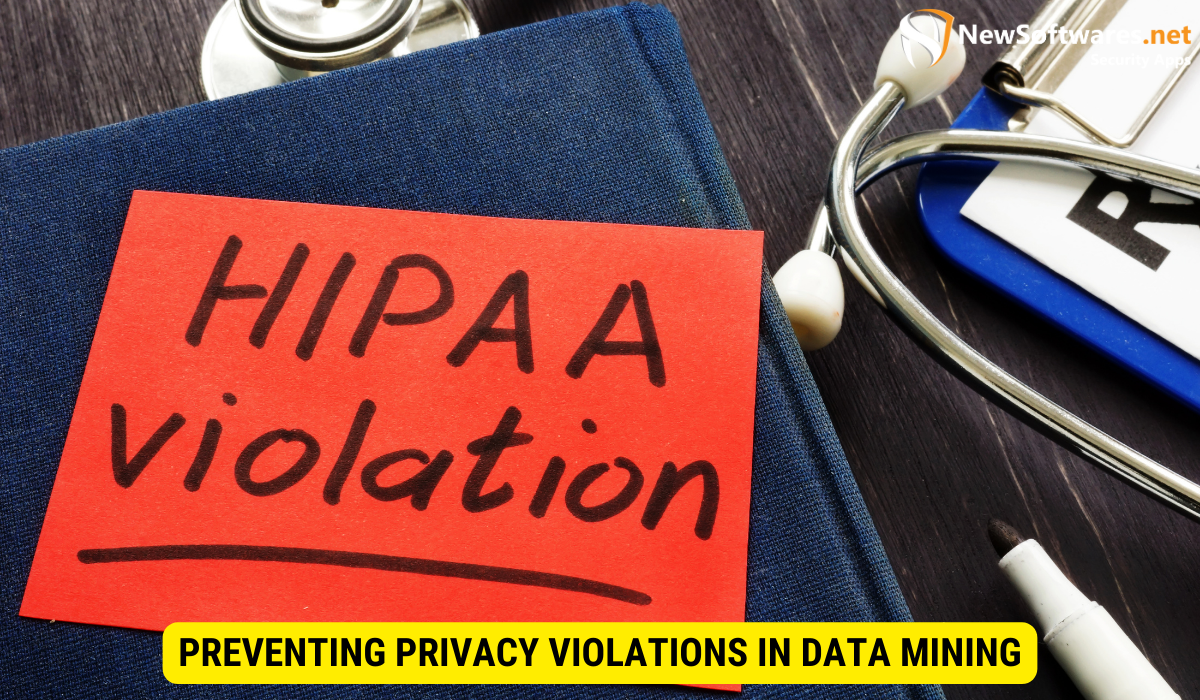Data mining can impact privacy by revealing personal information, and potential violations include invasive data collection and unauthorized data use. Legal compliance and ethical practices are crucial to protect individuals’ privacy in data mining.
Data mining has become an essential tool for businesses and organizations in extracting valuable insights from large sets of data. However, the increasing use of data mining techniques has raised concerns about privacy violations. I will explore the potential violations associated with data mining and the legal and ethical implications surrounding it.
Understanding Data Mining: An Overview

Defining Data Mining
Data mining is the process of discovering patterns, trends, and insights from vast amounts of data. It involves extracting meaningful information and knowledge from databases, data warehouses, and other data repositories.
Data mining is a powerful tool that has revolutionized the way businesses operate. By analyzing large datasets, organizations can gain valuable insights into customer behavior, market trends, and business performance. These insights can then be used to make informed decisions, optimize processes, and drive innovation.
One of the key advantages of data mining is its ability to uncover hidden patterns and relationships that may not be immediately apparent. For example, a retail company may use data mining techniques to identify customer segments based on their purchasing behavior. This information can then be used to tailor marketing campaigns and promotions to specific groups, increasing the effectiveness of their efforts.
Data mining uses various techniques such as statistical analysis, machine learning, and artificial intelligence algorithms to identify patterns and make predictions or decisions. These techniques allow organizations to analyze large datasets quickly and efficiently, saving time and resources.
The Process of Data Mining
The data mining process involves several steps. It starts with data collection, where relevant data is gathered from various sources. This can include internal databases, external sources such as social media platforms, and even public datasets.
Data collection is a critical step in the data mining process, as the quality and relevance of the data directly impact the accuracy and usefulness of the insights gained. Organizations must ensure that the data collected is accurate, up-to-date, and representative of the problem or question they are trying to solve.
The next step is data preprocessing, which includes cleaning, transforming, and integrating the data to ensure its quality and consistency. This step is crucial as raw data often contains errors, missing values, or inconsistencies that can affect the accuracy of the analysis. Data preprocessing techniques involve removing outliers, handling missing values, and normalizing data to bring it into a consistent format.
Once the data is prepared, the actual data mining process begins. This step includes selecting the appropriate algorithms and models to analyze the data and extract meaningful patterns. There are various data mining techniques available, each suited to different types of data and objectives. Some common techniques include classification, clustering, regression, and association rule mining.
During the data mining process, it is important to iterate and refine the analysis as new insights are discovered. This may involve adjusting parameters, trying different algorithms, or exploring additional variables. The goal is to uncover patterns and relationships that can be used to make predictions or decisions.
The final step is interpreting and evaluating the results obtained from the data mining process. This involves analyzing the patterns and insights discovered and assessing their significance and usefulness. It is important to consider the context and domain knowledge when interpreting the results to ensure they are meaningful and actionable.
Data mining is a continuous process, as new data is constantly being generated and new insights can be gained. By leveraging the power of data mining, organizations can gain a competitive edge, drive innovation, and make data-driven decisions that lead to business success.
The Intersection of Data Mining and Privacy
How Data Mining Can Impact Privacy
Data mining can pose significant risks to privacy. By analyzing large datasets, data mining techniques can reveal personal information, insights, and behavioral patterns that individuals may wish to keep private.
For example, data mining can identify sensitive information such as medical records, financial transactions, and personal preferences, which can be exploited if in the wrong hands. Furthermore, data mining can lead to the creation of detailed profiles about individuals, raising concerns about potential surveillance and discrimination.
In recent years, there have been numerous cases where data mining has resulted in privacy breaches. One notable example is the Cambridge Analytica scandal, where personal data of millions of Facebook users was harvested and used for political advertising without their consent. This incident highlighted the need for stricter regulations and safeguards to protect individuals’ privacy in the age of data mining.
Moreover, data mining can also have unintended consequences on privacy. As algorithms become more sophisticated, they can make predictions and inferences about individuals that go beyond what is explicitly shared. This raises questions about the accuracy and fairness of such predictions, as well as the potential for discrimination based on inferred characteristics.
The Role of Personal Information in Data Mining
Personal information plays a crucial role in data mining. The more data points available, the more accurate and insightful the analysis can be. Data mining algorithms often rely on personal information such as age, gender, location, and browsing history to generate valuable insights.
While personal information is essential for effective data mining, its collection and use should be governed by strict privacy policies and regulations to protect individuals’ rights and ensure consent and transparency.
One approach to address privacy concerns in data mining is the concept of differential privacy. This technique involves adding noise or randomness to the data before it is analyzed, making it more difficult to identify specific individuals. Differential privacy provides a balance between data utility and privacy protection, allowing for meaningful analysis while minimizing the risk of re-identification.
Additionally, data anonymization techniques can be employed to further protect privacy in data mining. By removing or encrypting personally identifiable information, individuals’ identities can be safeguarded while still allowing for analysis and insights to be derived from the data.
It is also important to consider the ethical implications of data mining and privacy. Organizations that engage in data mining should prioritize the ethical use of personal information, ensuring that individuals’ rights and privacy are respected. Transparency and accountability should be key principles guiding data mining practices, with clear communication to users about how their data is being collected, analyzed, and used.
Potential Privacy Violations in Data Mining
Invasive Data Collection Practices
One potential privacy violation in data mining is the collection of excessive and unnecessary personal data. Organizations may employ intrusive data collection practices without individuals’ knowledge or consent, leading to privacy breaches.
These practices may involve the indiscriminate collection of sensitive information or the use of covert tracking technologies. It is crucial for organizations to adopt transparent and ethical data collection practices to mitigate privacy risks.
Unauthorised Use of Personal Data
Another potential privacy violation is the unauthorized use of personal data. Data mining can extract personal information without individuals’ consent or knowledge, which can then be used for purposes other than the original intent.
For example, personal data collected for marketing purposes may be sold to third parties, resulting in unwarranted solicitation and potential misuse of personal information. Strict regulations and guidelines must be in place to ensure the ethical and lawful use of personal data in data mining.
Legal and Ethical Implications of Data Mining
Current Laws Governing Data Mining and Privacy
Several laws and regulations govern data mining and privacy. For example, the General Data Protection Regulation (GDPR) in the European Union requires organizations to obtain explicit consent for data collection, use, and storage. It also grants individuals the right to access and request the deletion of their personal data.
Other countries have similar laws in place to protect individuals’ privacy rights. It is essential for organizations to comply with these regulations to avoid legal consequences and maintain public trust.
Ethical Dilemmas in Data Mining
Data mining presents various ethical dilemmas. For instance, the use of personal information without individuals’ informed consent raises ethical concerns about autonomy and privacy.
Data mining can also contribute to biases and discrimination if algorithms are built on biased datasets or if certain individuals or groups are disproportionately affected by the outcomes of data mining processes. It is crucial for organizations to prioritize fairness and accountability in data mining to mitigate these ethical dilemmas.
Preventing Privacy Violations in Data Mining

Strategies for Protecting Personal Data
Organizations can take several steps to protect personal data during the data mining process. One strategy is to implement strict data anonymization techniques to ensure that individuals’ identities cannot be directly linked to their data.
Organizations should also implement robust data security measures to safeguard personal information from unauthorized access or breaches. Additionally, organizations must provide clear and concise privacy policies, ensuring transparency and obtaining individuals’ informed consent for data collection and use.
The Future of Data Mining and Privacy
The future of data mining and privacy is ever-evolving. As data mining techniques advance, so should privacy protection measures. Striking a balance between the benefits of data mining and protecting individuals’ privacy will be crucial in shaping the future landscape.
Emerging technologies like differential privacy and secure multiparty computation hold promise in preserving privacy while still allowing for valuable data mining insights. Ongoing discussions, collaboration between industry and regulatory bodies, and public awareness will shape the future policies and practices surrounding data mining and privacy.
Key Takeaways
- Data mining involves the discovery of patterns and insights from large datasets.
- Data mining can impact privacy by revealing personal information and creating detailed profiles.
- Potential privacy violations in data mining include invasive data collection practices and unauthorized use of personal data.
- Laws and regulations govern data mining and privacy, such as the GDPR in the European Union.
- To prevent privacy violations, organizations should implement strategies like data anonymization and robust data security measures.
FAQs
What is data mining?
Data mining is the process of discovering patterns, trends, and insights from large datasets.
How does data mining impact privacy?
Data mining can impact privacy by revealing personal information and creating detailed profiles about individuals.
What are some potential privacy violations in data mining?
Potential privacy violations in data mining include invasive data collection practices and unauthorized use of personal data.
Are there any laws governing data mining and privacy?
Yes, laws such as the General Data Protection Regulation (GDPR) in the European Union govern data mining and privacy.
How can organizations prevent privacy violations in data mining?
Organizations can prevent privacy violations by implementing strategies like data anonymization and robust data security measures.
Conclusion
Data mining offers immense potential for extracting valuable insights from vast amounts of data. However, it also raises concerns about privacy violations. To ensure a balance between data mining and privacy protection, organizations must adopt transparent and ethical practices, comply with regulations, and prioritize individuals’ consent and data security. By doing so, data mining can continue to drive innovation and decision-making while safeguarding individuals’ privacy rights.
